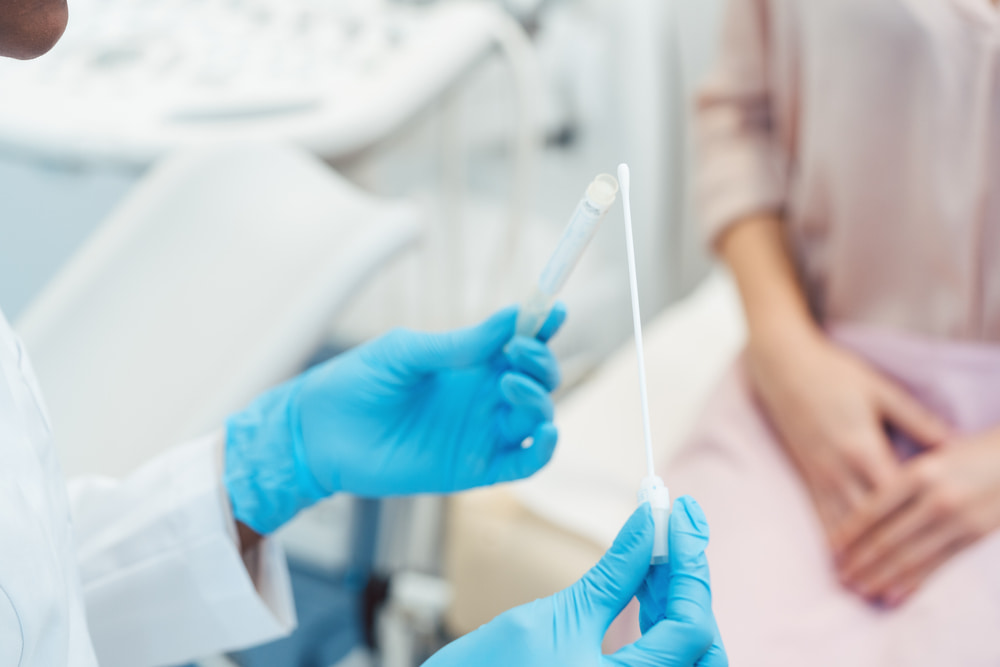
Genetics, stress levels, hormonal issues, pelvic injuries, and many other factors can impact fertility in men and women. Most experts recommend that you undergo fertility testing if:
- You are under 35 and have been trying to conceive for more than a year.
- You are 35 or older and have been trying to conceive for six months.
For many couples, fertility testing brings the peace of mind which comes with the knowledge that they should be able to conceive naturally in the future and are not lowering their chances of starting a family just because they choose to wait.
Continue reading to find out what to expect when you undergo fertility tests at the V Fertility Center:
Understanding Your Fertility Issues
The initial visit to the V Fertility Center is about charting your medical history and diagnosing any apparent issues that could be causing problems. Typically both partners will be asked to attend the appointment, and our fertility specialist will ask a series of questions, which could include asking about:
Women:
- Menstrual irregularities, including missed or late periods and spotting in between periods.
- Changes in the volume and type of blood flow, like heavy bleeding or large blood clots.
- Previous pregnancies or miscarriages.
- Complications with previous pregnancies.
- Previous treatment sought to treat infertility.
- Injuries to the uterus or the pelvic area.
- Exposure to environmental toxins.
Men:
- Premature ejaculation.
- History of chronic illnesses.
- Erectile dysfunction.
- If you’ve had a vasectomy in the past.
- Previous sperm analysis results.
- Exposure to environmental toxins such as lead and pesticides.
- Pain during ejaculation.
- Injury to the spinal cord or injury or illness involving the prostate glands.
- Trauma to the scrotum area which may/may not have required surgery.
- Use of cholesterol-lowering drugs, Rogaine (hair growth products), and anabolic steroids.
Both of you
You will then be asked a number of questions as a couple, focusing on things like mental health issues, frequency of intercourse, your birth control and other lifestyle-related questions.
Physical examinations
Your physical examination will look at your height, weight, blood pressure, BMI, and arm span (to understand issues related to growth hormones). In addition to this, the physical examination will also include:
Women
- A pelvic examination to diagnose any obvious abnormalities in the size of the reproductive organs.
- A breast examination to understand hormonal irregularities and diagnose the prevalence of galactorrhea disease.
- Body hair distribution analysis to diagnose possible hirsutism and hormonal abnormalities.
For men
- Penis examination to diagnose issues with size and shape and the urethral opening.
- Scrotum examination to diagnose undescended testicles and irregularities in the size and shape of the testiclesm and varicose veins in the scrotal area.
The fertility screening interview and the physical examination set the stage for the next step of fertility tests for couples at the V Fertility Center. Depending on the results, the fertility specialist may prescribe further tests.
Pathology and Imaging Fertility Screening Tests for Women
In women, fertility relies on the release of healthy eggs, which is directly influenced by the health of the uterus, the uterine lining, the ovaries, and the fallopian tubes. So, tests may be conducted to understand these in more detail.
Imaging and pathological tests are meant to pinpoint abnormalities or problems. Most likely, the fertility specialist will start with blood tests and non-intrusive screening tests such as:
- FSH testing: This blood test is done on the third day after your period starts. It is done to determine the levels of the follicle-stimulating hormone. FSH testing helps to evaluate healthy ovarian function and the proper supply and release of eggs.
- Estradiol testing: This test will usually be conducted with FSH testing because blood samples for both have to be collected on the second or third day of your menstrual cycle. Because this test analyzes the levels of estradiol, which is a form of estrogen, it helps in the evaluation of the health of the eggs.
- Mid-luteal phase hormone tests: These determine the level of luteinizing hormone (LH), which is connected to the production of eggs in the ovary and their maturation in the follicles. The blood sample is collected midway through the menstrual cycle (which would be on Day 14 if you have a 28-day cycle) to determine when you are ovulating. If the test is done at the beginning of the cycle, it helps to diagnose hormonal irregularities caused due to PCOS.
As far as imaging tests are concerned, your doctor will start with a basic ultrasound of the pelvic area. This painless procedure is meant to rule out or diagnose abnormalities in the size/shape/thickness of the uterus and cysts or irregularities in the ovaries.
If the tests above do not provide a definitive diagnosis of health conditions contributing to fertility issues, the doctor will ask you to go for further tests such as a Sonohysterogram, Hysterosalpingography, Laparoscopy, or Hysteroscopy.

Pathology and Imaging Fertility Screening Tests for Men
In men, fertility depends on the volume and health of the sperm. For conception to occur, the appropriate volume of sperm has to be ejaculated into the vagina, and these sperm have to travel to the egg to fertilize it. Diagnostic tests analyze whether any hormonal or physical issues are hindering this process. Usually, for fertility testing in men, the diagnostics start with a sperm analysis.
You will have to provide your semen sample for this test, which is usually done by collecting discharge after masturbation or interrupting intercourse and ejaculating into a clean container. The sample will be analyzed for sperm count, volume, movement, size, shape, and quality.
Often a sperm analysis will be done alongside a urine test to determine what volume of viable sperm is being lost through urine. While some sperm in the urine is expected, a higher-than-normal volume may be an issue. Also, because the sperm count can vary significantly between samples, you will be asked to go through this test more than once.
The fertility specialist will also prescribe blood tests to evaluate hormone levels. Generally, the first line of tests will include the following:
- Androgen testing: This helps determine low sex drive and erection issues.
- Testosterone testing: Pinpoints the cause of sperm count problems and low sex drive.
- Prolactin testing: Used to understand issues such as erectile dysfunction and lack of sex drive.
- LH level testing: A luteinizing hormone test in men is meant to evaluate male factor infertility as this hormone directly impacts sperm production.
- FSH testing: In men, this test is performed to evaluate sperm count anomalies.
If your sperm analysis points to abnormalities, depending on what these are, your doctor may ask you to undergo further tests such as an ultrasound of the scrotal area, rectal ultrasound, genetic testing, or a testicular biopsy.
This may seem like a long process, but you are in good hands at the V Fertility Center. Our doctors have the knowledge and the experience to accurately diagnose fertility issues. Once a proper diagnosis is made, it is often possible to effectively and successfully treat the problem.
So, if you are frustrated and stressed because you simply cannot get pregnant, no matter how hard you try, book an appointment at the V Fertility Center right away to undergo fertility tests as a couple.

The team of specialists in obstetrics and gynecology and reproductive medicine





No Comments
Sorry, the comment form is closed at this time.